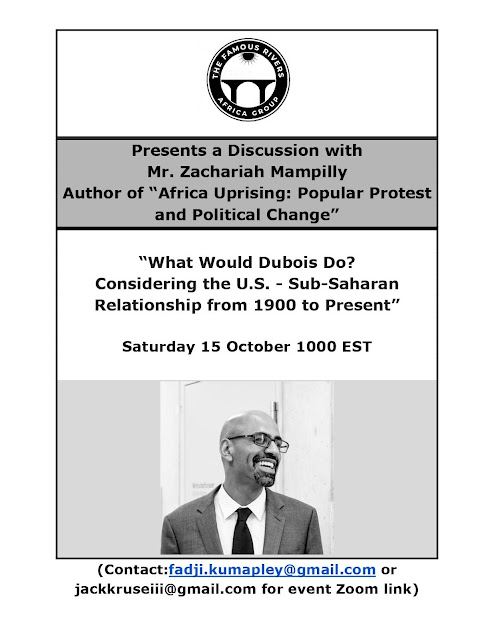
Fadji wrote this summary in preparation for our upcoming session with Roger this Saturday, 10 April.
"The Last Hunger Season" is an account of a year Roger Thurow spends in a Kenyan farming community on the brink of change through the adoption of hybrid seeds, fertilizer, training, and a credit system provided by the US-based “One Acre Fund” non-profit social enterprise. The author is absent in the narrative, which focuses instead on the farmers’ lived experience as they adopt new techniques.
The book reemphasizes some of the themes discussed in his first publication, “enough,” mainly the need for US humanitarian and development assistance to provide sustainable and lasting programs that would improve yield, prevent crop failure, and ensure food security locally. As he points out, it costs five to six times more money to deliver one ton of American grown maize to Africa than to provide smallholder African farmers with the seed and fertilizer needed to produce the ton of maize themselves.
In that vein, Roger highlights the US government’s Feed the Future program and the recent creation of the Bureau for Food Security within USAID as positive steps in that direction. The book also points out that other geopolitical actors such as China have started investing in agricultural projects across the continent, setting the stage for Beijing reaping the fruits of the upcoming African green revolution.
In a prelude to his last book, “The First 1000 Days,” Roger notes that hunger and food insecurity, especially in expectant mothers and young children leads to a lifetime of physiological issues, which directly translates into lower health outcomes, unrealized productivity, all of which hindering a country’s economic growth and development prospects.
The book reemphasizes some of the themes discussed in his first publication, “enough,” mainly the need for US humanitarian and development assistance to provide sustainable and lasting programs that would improve yield, prevent crop failure, and ensure food security locally. As he points out, it costs five to six times more money to deliver one ton of American grown maize to Africa than to provide smallholder African farmers with the seed and fertilizer needed to produce the ton of maize themselves.
In that vein, Roger highlights the US government’s Feed the Future program and the recent creation of the Bureau for Food Security within USAID as positive steps in that direction. The book also points out that other geopolitical actors such as China have started investing in agricultural projects across the continent, setting the stage for Beijing reaping the fruits of the upcoming African green revolution.
In a prelude to his last book, “The First 1000 Days,” Roger notes that hunger and food insecurity, especially in expectant mothers and young children leads to a lifetime of physiological issues, which directly translates into lower health outcomes, unrealized productivity, all of which hindering a country’s economic growth and development prospects.



No comments:
Post a Comment